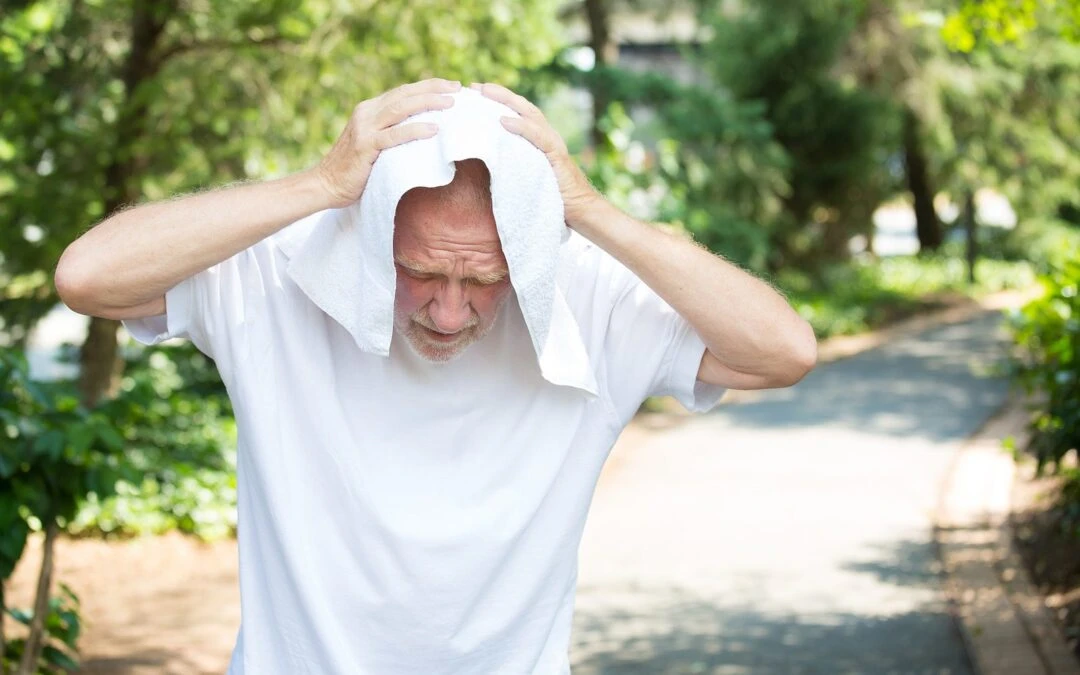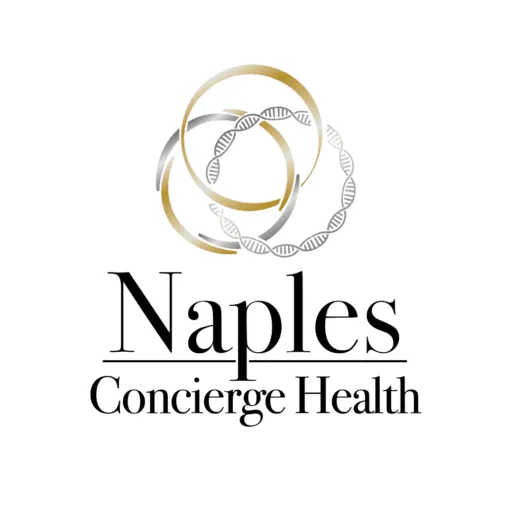Florida’s warm climate is a major draw for visitors, but the intense heat and humidity can pose serious health risks. While many are familiar with sunstroke, other heat-related illnesses can be just as dangerous. Understanding the differences between these conditions can help you stay safe in Florida’s heat.
When temperatures rise, the body has to work harder to stay cool, and that extra strain can lead to serious health issues. Dehydration and heat exhaustion are often the first warning signs, but they can quickly turn into life-threatening heatstroke without proper care.
And it’s not just people spending hours in the sun who are at risk.
Factors like high humidity, not drinking enough water, or underlying health conditions can make anyone vulnerable.
The good news is that heat-related illnesses are preventable. You can stay safe and avoid serious complications by recognizing the signs early and taking simple precautions.
Heat-Related Illnesses
Understanding heat-related illnesses is essential for staying safe in hot weather.
These conditions can start mild, like dehydration, but if ignored, they can quickly become more serious.
Anyone spending time in high temperatures is at risk, and symptoms can come on fast.
Dizziness, excessive sweating, and fatigue are often the first red flags. However, knowing what to look for and how to react can help prevent a dangerous situation before it gets out of hand.
Sunstroke vs. Heatstroke
Heatstroke and sunstroke might seem like the same thing, and while they share similar symptoms, their causes are slightly different.
Heatstroke happens when your body overheats and can’t cool itself down, pushing your temperature to dangerous levels. This doesn’t always require direct sun exposure, you could develop heatstroke just by being in a hot, stuffy room with no airflow.
Sunstroke, on the other hand, is a type of heatstroke that’s specifically caused by too much direct sunlight.
Both are serious conditions that need immediate attention. If you’re feeling lightheaded, weak, or overheated after spending time in the sun, you might actually have heat exhaustion.
While not as severe as heatstroke, it can quickly escalate if you don’t take steps to cool down and rehydrate.
Heat Exhaustion vs. Heatstroke
Heat exhaustion and heatstroke are often confused, but they are distinct conditions requiring different responses.
Heat exhaustion occurs when the body loses excessive fluids and electrolytes due to prolonged exposure to high temperatures.
Common heat exhaustion symptoms include heavy sweating, weakness, dizziness, nausea, and a rapid pulse. Without intervention, heat exhaustion can escalate into heatstroke.
Heatstroke (or sunstroke) is a life-threatening condition where the body’s temperature rises above 104°F (40°C), leading to confusion, loss of consciousness, and even organ failure.
Unlike heat exhaustion, heatstroke often presents without sweating, as the body’s cooling mechanisms shut down. Immediate medical attention is critical.
Recognizing the difference between sunstroke and heatstroke is vital, as heatstroke requires urgent emergency care. If someone is experiencing confusion, seizures, or unconsciousness, call 911 immediately.
Heat Cramps and Dehydration Risks
Heat cramps are painful muscle spasms caused by excessive sweating and the loss of essential salts and minerals. They are often an early warning sign of heat exhaustion and dehydration. Staying hydrated and consuming electrolyte-rich fluids can help prevent these issues.
Dehydration can develop rapidly in Florida’s high temperatures, especially for those unaccustomed to the climate.
Mild dehydration may cause thirst and dry mouth, while severe dehydration can result in confusion, fainting, and even kidney damage.
It’s hazardous for young children, older adults, and those with chronic illnesses. To prevent dehydration, drink fluids consistently throughout the day rather than waiting until you feel thirsty.
Who Is Most at Risk?
While anyone can develop a heat-related illness, certain groups are particularly vulnerable.
- Seniors: Older adults cannot regulate body temperature, making them more susceptible to heat exhaustion and heatstroke.
- Tourists and newcomers: Visitors unfamiliar with Florida’s extreme heat may underestimate the risks and fail to take necessary precautions.
- Individuals with pre-existing conditions: People with heart disease, high blood pressure, diabetes, or respiratory illnesses may be at greater risk of heat-related complications.
- Outdoor workers and athletes: Those engaged in strenuous outdoor activity, such as construction workers or marathon runners, are more likely to dehydrate and overheat.
- Children and infants: Young children have underdeveloped temperature regulation mechanisms, making them more susceptible to heat-related conditions
Signs and Symptoms to Watch For
Recognizing the early signs of heat-related illnesses can prevent complications:
- Heat exhaustion: Heavy sweating, pale skin, muscle cramps, dizziness, headache, nausea, and fainting.
- Heatstroke: Confusion, rapid heartbeat, hot and dry skin (no sweating), seizures, and loss of consciousness.
- Heat cramps: Painful muscle spasms, particularly in the legs or abdomen, often accompanied by excessive sweating.
- Dehydration: Thirst, dry mouth, reduced urination, dark-colored urine, and fatigue.
Ignoring these warning signs can lead to life-threatening situations, so it is crucial to take action as soon as symptoms appear.
Prevention and Treatment Strategies
Avoiding heat-related illnesses starts with proper planning and precautionary measures.
Hydration and Electrolyte Balance
Staying hydrated is the most effective way to prevent heat exhaustion symptoms and other heat-related conditions.
- Drink plenty of water throughout the day, even if you don’t feel thirsty.
- Supplement with electrolyte drinks if engaging in prolonged outdoor activity.
- Avoid excessive alcohol and caffeine, as they contribute to dehydration.
- Eat water-rich foods such as fruits and vegetables to help maintain hydration.
Clothing Choices and Shade-Seeking Strategies
What you wear and how you manage your sun exposure can significantly reduce your risk.
- Wear lightweight, light-colored, and loose-fitting clothing to allow heat to escape.
- Choose breathable fabrics like cotton and moisture-wicking materials.
- Use wide-brimmed hats and sunglasses for additional protection.
- Take frequent breaks in shaded or air-conditioned areas.
- Avoid outdoor activities during peak heat hours (10 a.m. – 4 p.m.).
- Apply sunscreen regularly to protect against sunburn, which can exacerbate heat-related illnesses.
When to Seek Medical Help
If you or someone around you experience signs of heat exhaustion or heatstroke, take immediate action:
- Move to a cooler, shaded area.
- Remove excess clothing and apply cool compresses to the skin.
- Sip water slowly; avoid chugging large amounts at once.
- If symptoms worsen or the person becomes disoriented, seek medical help immediately, heatstroke is a medical emergency.
- If someone is unconscious due to heatstroke, do not attempt to give them fluids. Instead, call 911 and use cool water or ice packs on pulse points (wrists, neck, groin) to lower their body temperature.
Protect Yourself with Naples Concierge Health
Navigating Florida’s heat can be challenging, but Naples Concierge Health is here to help. Whether you need urgent medical assistance or guidance on staying safe in the heat, our expert physicians provide personalized care when and where you need it.
Our team is committed to providing care for you and your loved ones for illnesses such as heat exhaustion and helping to distinguish between sunstroke and heatstroke.
Whether you’re a resident or a visiting tourist with pre-existing health conditions, our concierge medical services offer prompt, expert attention to keep you healthy in Florida’s warm climate.
Stay safe, stay hydrated, and trust Naples Concierge Health for all your medical needs. If you or a loved one is experiencing symptoms of heat-related illness, call for emergency services and then contact us for follow up care. We’re here to help: anytime, anywhere.

